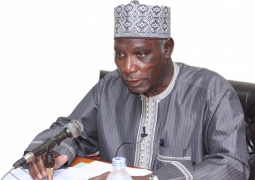The Rice Value Chain Transformation Programme was started in December 2018, with total grant financing of US$7 million from the African Development Fund, the Bank’s concessional lending window, and the Transition Support Facility. The project’s goal is to improve farm incomes, rural livelihoods, and food and nutrition security in the country. Thus, it targets the production, processing, and marketing of rice in The Gambia, as well as reducing imports.
The additional financing would focus on providing subsidised inputs as well as policy reforms destined to scale up food production. This includes providing climate-resilient inputs at subsidised rates to smallholder farmers and enhancing the existing farmers’ registration database for smart delivery of subsidies and targeted extension services.
The additional financing project builds on the existing seed and fertiliser distribution systems in the Gambia, developed by the Bank, and will explore digital approaches to delivering smart subsidised inputs to farmers and vulnerable groups such as women and youth.
The government of The Gambia made a request for support from the African Development Bank in May 2022, following the impact of the Russia-Ukraine crisis, to enable the country to meet its food production needs for 2022 and 2023.
On May 20, the African Development Bank approved an African Emergency Food Production Facility to bring relief to some 20 million smallholder farmers across the continent. This includes supplying farmers with high-quality wheat, rice, maize and soya seeds and fertiliser, along with an array of technical support services. The objective is to produce an additional 38 million tons of food – worth $12 billion – in Africa over the next two years.
The Gambian government has taken major strides in meeting food and nutritional security over the past few years, especially in the production of grains and support to agro-commodity value chains. However, a dependence on imports, particularly fertilisers, and other foodstuffs, has deepened the country’s vulnerability to external shocks. The Gambia has been affected by a hike in fertiliser prices on the global market, with the price of fertiliser increasing by more than a 100% since the beginning of the year.




